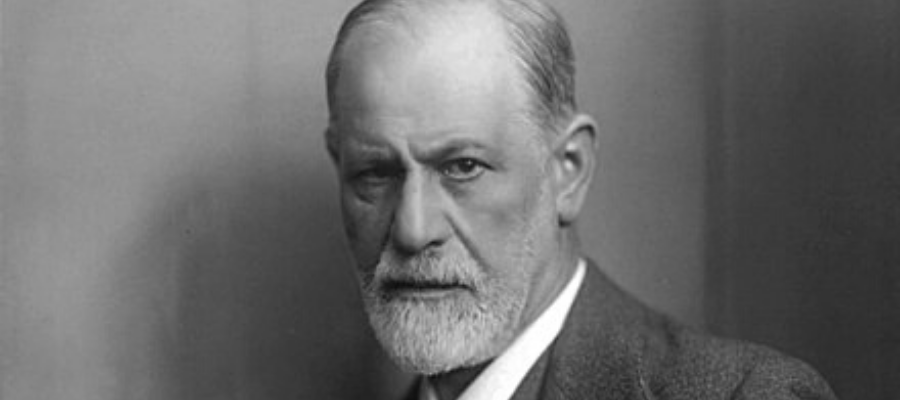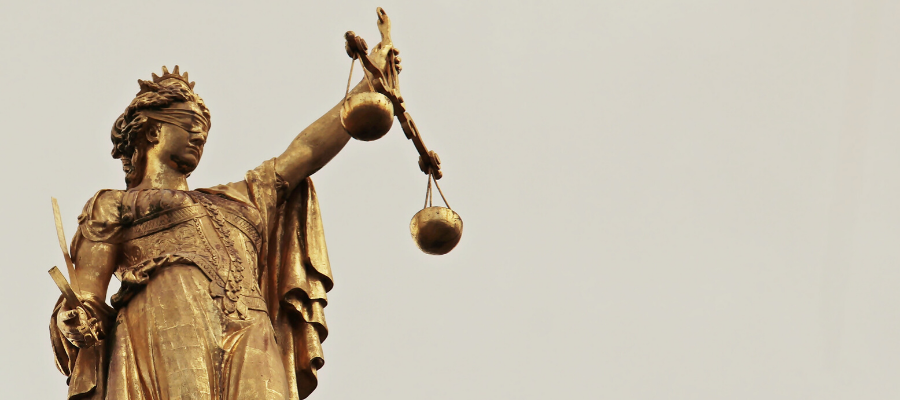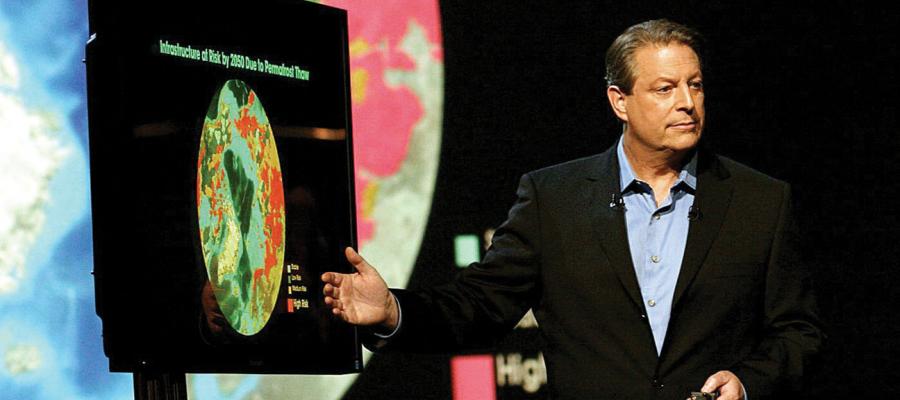Epicurus and the Good Life
03
Mar 2012
This week’s conversation is about Epicurus and the Good Life. Now in common parlance an epicurean is one who is “fond of or adapted to luxury or indulgence in sensual pleasures; having luxurious tastes or habits, especially in eating and drinking.” But the Ancient Greek philosopher Epicurus was decidedly not an epicurean in that sense of the word. His philosophy is actually pretty far removed from epicureanism as ordinarily understood. Epicurus did acknowledge that desires for good food and fine wine were natural. But he actually dismissed such...
Read more200 and Counting!
14
Nov 2009
Help Us Celebrate 200 Episodes of Philosophy Talk!
Our 200th episode is coming up, and to mark the occassion we're compiling a Philosophical Top 10 List.
What burning issue do you think philosophers and Philosophy Talk should tackle in the years ahead?Send your suggestions for our Philosophical Top 10 list to comments@philosophytalk.org or post them here on our blog. We will be monitoring the blog during the show.
Why I am not a Stoic!
25
Jul 2006
I learned alot about Stoicism both in preparing for yesterday's episode and from our guest John Cooper. Fortunately, although John Cooper knows a great deal about the stoics, he wasn't very stoical in his discussion of them. He was lively, impassioned, and engaging. It was, I thought, a very good episode. If you didn't hear it, check it out. (I can't yet link to it, though, since the episode usually goes up on the web only after it's also aired on OPB.) I don't profess to fully understand stoicism. I never read much...
Read more#FrancisOnFilm: Get Out
04
Apr 2017
Get Out is a horror film, or so critics say. They also say it’s a film about race, especially how white people react awkwardly and embarrassingly to black people in upscale social contexts. Emphasizing these themes has the advantage for reviewers of not giving away anything very much about the plot of the film while explaining why viewers should see it. But there are other good reasons to see the film, which don’t have much to do primarily with either race or horror. I’ll try not to be a spoiler in this review—although you really shouldn’t read further until after you’ve seen the...
Read morePhilosophy of the Midlife Crisis
07
Aug 2017
MIT philosopher Kieran Setiya thinks he can shed some light on the meaning and implications of the midlife crisis. The term “midlife crisis” gained popularity after psychoanalyst Elliot Jacques published a paper entitled “Death and the Midlife Crisis.” He found that his patients were flourishing but had a sense of malaise and meaninglessness associated with death. He was concerned with people of the first world, wherein things in their life were going well but there was still a sense of futility. Setiya found the sense of futility “very elusive” and therefore, puzzling. The...
Read moreThe Puzzle of the Unconscious
04
Feb 2019
Last month, I described how ideas inspired by the work of the 17th century philosopher René Descartes cast a long shadow over the sciences of the mind. One aspect of his influence concerned beliefs about the relationship between the human mind and the human brain. In the late nineteenth and early twentieth centuries, most scientists of the mind were dualists. They believed that although the brain is a physical organ, the mind is a non-physical thing that’s distinct from it. Another aspect of the Cartesian influence had to do with the mind’s relation to itself. Most of Freud’s contemporaries...
Read more#FrancisOnFilm: Dionysus for Docs
03
Feb 2020
A documentary film has never won the Philosophy Talk Dionysus Award for Most Philosophical Film of the Year, even though documentaries are by nature bound to be interested in the pursuit of truth. Perhaps it’s because documentaries are less popular, often perceived as dull, dry, and preachy. Or maybe they are just not so widely seen, shown once on public television, or for a week in a few obscure art house cinemas, then relegated to some dusty archive. But I love documentaries—they often raise complex philosophical issues and get us to question our assumptions. This year’s Oscar...
Read moreOf Philosophy and Basketball
06
Dec 2017
I’m reaching the end of a semester-long sabbatical, and will soon have to start thinking about preparing for the courses that I will be teaching in the spring semester. Sabbatical leave is something that we professors cherish. For one semester every seven years (or two semesters if you’re lucky) we are freed from the demands of teaching and the tedium of committee work to catch up on research and writing. I love teaching. For me, there is nothing more rewarding than cultivating young minds, and I regard making a living by teaching undergraduate philosophy is an immense privilege....
Read moreTrolling, Bullying, and Flame Wars
13
Apr 2018
Are trolling, bullying, and flame wars an inevitable result of online communication? Does the anonymity and invisibility of cyberspace lead to toxic speech and behavior? How can we create more toxic-free environments online?Without a doubt, the internet has revolutionized communications. It is an incredibly powerful tool that enables us to exchange ideas and information with people from all over the globe in an instant. But it also seems to bring out the worst of people’s anti-social tendencies. Trolls were once fictional characters, nasty creatures living under...
Read moreSaints, Heroes, and Schmucks Like Me
02
Sep 2005
Thanks to Susan Wolf for an interesting discussion. The episode certainly prompted lots of response from listeners. We must have set a record for questions submitted via e-mail. There were also more callers than we could get to. Susan has a point. There is more to living well than slavishly and single-mindedly devoting oneself to moral perfection -- either of oneself or of the world. I want a life filled with goods of all sorts -- many of them non-moral. I want moments in which I contemplate beauty, even if by such...
Read moreAffirmative Action – Too Little or Too Much?
07
May 2016
This week, our topic is Affirmative Action, We thought we’d focus on the question whether affirmative is too little, or too much, “Too little or too much what?” you ask. Does it bring about too little racial justice – because it doesn’t go far enough? Or does it bring about too much racial resentment – because it goes way too far? I fear that the correct answer may be that it’s a little bit of both. Affirmative action doesn’t begin to be a fully adequate instrument for achieving racial justice but,...
Read more#FrancisOnFilm: Al Gore at Sundance - Truth to Power
23
Jan 2017
An Inconvenient Sequel: Truth to Power brings Al Gore’s message of the urgency of addressing climate change to film audiences. Directed by Bonni Cohen and Jon Shenk, produced by Participant Media, with music composed by Jeff Beal, the film will be distributed by Paramount Pictures—they hope to wide audiences. The film interweaves efforts to address climate change since Vice President Gore’s defeat sixteen years ago with strikingly beautiful and disconcerting images of the collapse of the polar ice caps and drought-stricken areas across the globe. People interested in...
Read moreThe Paradoxes of Ideology
02
Jun 2015
The notion of ideology is very important in political thought, as well as in everyday discourse. But even though scholars have produced mountains of erudite writing on the topic, there’s disagreement about exactly what ideology is and how, if at all, we can square the various notions of ideology with one another. Most current notions of ideology grew out of the 19th century writings of Karl Marx. Marx’s main discussion of it is in The German Ideology, an early work that he co-authored with his friend and benefactor Friedrich Engels. Marx and Engels argue that economic...
Read moreWhat Makes A Man?
19
Mar 2021
Does masculinity need a makeover for the 21st century? Should your gender matter to who you are as a person? Why think there’s just one thing it means to be a man? This week on Philosophy Talk, we’re discussing masculinity and what makes a man. Many people are suspicious of traditional masculine ideals, and for good reasons. We live in a culture that expects men to be dominant, powerful, and good at suppressing feelings (other than anger). These expectations, often called “toxic masculinity”, are harmful to men themselves, since ideals of masculinity are difficult and painful to...
Read moreWelcome Our New Language-Learning Robot Overlords
02
Feb 2024
Can we learn things from ChatGPT and other large language models that shed light on human language acquisition? Sounds like it would be cool if it were possible, but how would it work? Well to start, human babies have to learn lots of things: how the objects around them behave, the rules of social interaction, the various parts of language. And it certainly seems like A.I.s learn language too. But what if all they do is imitate human speech? Do they think and have actual knowledge, or are they just fancy computer programs? Of course, what if our own minds are just fancy computer programs,...
Read moreActing Together
15
Mar 2014
The great English philosopher Thomas Hobbes famously said that in the state of nature, life is solitary, brutish and short -- as if nature designed people to act alone, rather than together. But acting together, this week's topic, is one of the most natural things in the world. If we never acted together, there would be no families, no teams, no countries. But what exactly is it to act together? Suppose we’re outside and it starts to rain. We both run toward the door to the studio. We’re trying to do the same thing -- get into the studio and out of the rain. Though we...
Read moreLincoln as a Philosopher
01
Jul 2011
Lincoln is revered as our greatest President; he is virtually an American Saint. In Sunday’s program, we look at his philosophical ideas --- both political and religious. Some of these are disturbing. The Second Inaugural Address --- the one that’s carved on the wall of the Lincoln Memorial --- is really quite chilling. Especially if you think it really represents the philosophy of someone who has just pursued a path that led to the death of half a million people. It ends with a very moving statement: With malice toward none, with charity for all, with firmness in the...
Read morePhilosophy for the Young: Corrupting or Empowering?
02
Sep 2010
Our topic this week: Philosophy for the young – corrupting… or empowering? We asked that question in front of an audience of high school at Palo Alto High School, in Palo Alto, California. We record this program there last May, at the invitation of a teacher, Lucy Filppu, an English teacher by training, who teaches a special humanities course. We had a blast and we’d very much like to thank the students and teachers at Paly, as it is affectionately called, for having us. We’d love to go back sometime. Now the charge that philosophy...
Read moreSaint Augustine
25
Jan 2008
What an interesting philosopher he turned out to be! And an interesting man, too. Set aside his historical importance --- the fact that he above all others brought together the Greek and Hebrew aspects of Christianity, that his work against the heresies of Arianism, Pelagianism and Manicheanism was tireless and and that, as many think, he is responsible for many of the more unfortunate aspects of Christianity, such as the low status of women, the negative attitude towards sex and other enjoyable bodily appetites, and the harsh doctrine of original sin. Just read him as...
Read moreWhy Self-Deception Research Hasn’t Made Much Progress
01
Sep 2010
I’d like to talk frankly about why research on the topic of self-deception hasn’t made much progress—as far as I can see—despite a steady-stream of on-going interest. There’s been some excellent work, but it doesn’t seem to me that the topic on the whole has moved forward all that much. In both philosophy and psychology there has been a tendency to talk about self-deception as if it were one thing. If it’s one thing, we can just figure out what that is. Right? The philosopher’s approach is to try to solve the paradox of self-deception and come up with an analysis of self-deception in...
Read moreWhy Music Matters: Open Thread!
12
Jan 2008
I'm in the airport at Tucson. I'm listening online to our episode on "Why Music Matters" which we recorded in front of live audience at a locale in San Francisco. David Harrington, of the world famous Kronos Quartet is our guest. Since my flight is about to board, I won't have time to listen at length. And I've been too wrapped up in the conference to blog about the topic. But I thought it might be fun just to open up an entry to comments from listeners about the show and the topic. I'll add my own two cents worth in a separate entry when I get some time --hopefully later this week. For now,...
Read more[AUDIO] When Driverless Cars Go Wrong
23
May 2017
The introduction of driverless cars to our roads brings with it moral and legal questions that we have never faced before. These new vehicles, controlled by artificial intelligence, are promised to make driving safer. However, with the inevitability of accidents, who is to blame for the harm caused by them? Does this responsibility lie with the car manufacturers, or must we simply accept that sometimes accidents happen? David Edmonds speaks with John Danaher on this episode of Philosophy 24/7, "Robots and Retribution". In a future with more and more controlled by artificial intelligence...
Read moreShould Hate Speech be Protected?
29
Sep 2017
Hate speech: it can exclude, stigmatize, and potentially threaten our progress toward equality. So why is hate speech protected under the First Amendment, and should it actually be protected? In this interview from the NYTimes, Erwin Chemerinsky, one of the foremost legal scholars on the First Amendment, argues that the First Amendment protects hate speech for good reason. Social progress has always depended on the protection of free speech, and because how hate speech is defined is both malleable and circumstance-dependent, institutions cannot ban free speech without...
Read moreThe Doomsday Doctrine
05
Aug 2019
This week we’re thinking about Nuclear Doomsday. But why worry about a nuclear doomsday now? The Cold War is over. At its height we had thirty thousand warheads pointed at the Soviets, they had forty thousand pointed at us – but we’re each down to a fraction of that. A climate doomsday seems much more likely. For one thing, there are still enough nuclear weapons in each arsenal to incinerate the earth, cause a nuclear winter, and extinguish practically all life on earth. But why not take comfort in the fact that exactly one country has ever seen fit to use a nuclear weapon...
Read moreA Cat's Life
24
Jul 2020
Listener Jacob B. in the UK got in touch with a great question on our recent "Pet Ethics" show. He writes: I am preventing my cat from staying out at night by limiting her food during her day so to make sure that she is hungry by night and returns around 11pm. It is for safety since foxes are roaming the area. Cats are nocturnal and I wonder whether I am depriving my cat of essential part of cat life experience. I asked Ray to respond to Jacob's question. Here's what they had to say: A lot of animal welfare frameworks designed for captive animals (such as zoo animals) take it for granted...
Read more





















